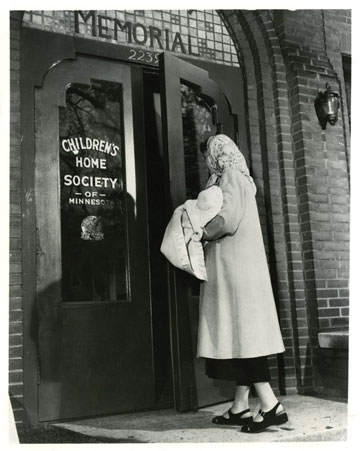JUNE 12, 2023 –
(Cont.) Mother had many friends besides Crystal Ball Chase and Kay Jacobson. Friends who were kind and friendly and just as smart as Crystal Ball and Kay. Friends such as Marian Fletcher, who politically was as stridently liberal as Dad was steadfastly conservative. Even as a young kid, I was struck by the contrast, since Mother seemed as comfortable in deep, long discussions with Marian as she was tolerant of Dad’s immovable opinions, though she had little choice in the latter instance. After Marian’s husband, a university professor, was killed when his sports car went out of control, Marian was a frequent visitor—along with her three-year-old daughter and infant son. In retrospect, I realize how much enduring moral support Mother provided. It was the pattern of Mother’s relationships.
Mother was also friends with Connie Burchett, our DFL (Democrat) state representative. One year during campaign season, a couple of neighborhood kids and I were tossing around a football in the street a couple doors down from our house. Representative Burchett’s car had just backed out from our driveway and was approaching us. Atop her vehicle was a triangular set of her large campaign signs on which “DFL-endorsed” was prominently displayed. My chums, whose parents were of Republican persuasion, cried out, “Down with DFL! Down with DFL!” I joined in, since my family was very Republican too.
Mother, who was still in the driveway, called out in desperation. “Don’t do that, Eric!” Her tone conveyed embarrassment more than anger. I tried to imagine how Dad would react if he saw Connie Burchett’s car-with-DFL-signs in our driveway. Something told me that Mother made sure that Connie would never visit except while Dad was at work. I later asked Mother why she was friends with a Democratic politician. She said Connie was a really good person and good public servant who deserved our support and left it at that.
Another close friend was Mary Ibele, Mother’s fellow student in graduate school and co-worker at Children’s Home Society. When it came to assembling a very short guest list for Mother and Dad’s golden wedding anniversary celebration—a dinner cruise on the Chippewa Flowage east of their lake cabin in northwest Wisconsin—Mary Ibele and her husband, Warren, were on it.
Mrs. Ibele was a non-wacky version of Mother, and my sisters and I always looked forward to our annual visit with the cerebral Ibele family every year on the Friday or Saturday immediately preceding Christmas. The Ibeles had four kids our ages, and every year, it seemed, they were all into something new and exciting and altogether brainy. They had the run of their big, comfortable, well-appointed house, which they filled with all sorts of fun, creative projects. They were the only kids we knew besides ourselves who did not have a television in the house.
Before and after the big feast that Mary Ibele prepared, each of us Nilsson kids would pair up with our counterpart Ibele kid while the grown-ups went off to talk and sip drinks. Warren Ibele was a professor at the University, and more often than not, one of his graduate students from overseas would be a guest too. After an evening with the intellectually witty and otherwise precocious Ibele family, I always wondered how it was that our family had had to wind up in what I considered a backwater town, where some of my rural grade school classmates wore the exact same clothes every single day and had never ventured outside the county[1].
Mary Ibele was a reminder of how Mother had found her way to Minnesota in the first place. After V-J Day, Mother discarded what could have been a promising engineering career and applied to the University of Minnesota’s graduate school in social work. Grandpa Holman must have been crest-fallen. Social work? In his view, that was charity, which was a civic and moral obligation, to be sure, but it was not something that a person as smart, talented, and educated as his daughter should pursue vocationally[2]. But pursue it she did—as did her intellectual equal, Mary Ibele—and after obtaining a master’s degree, the two went to work for Children’s Home Society in St. Paul, placing kids for adoption. Mother’s career path would come full circle when first my sister Elsa and then my wife and I wound up adopting our own kids through Children’s Home.
Mother’s broader circle of friends and acquaintances meant she was rarely alone. She was a magnet for people of all kinds and backgrounds with tales of woe, real and imagined. Her favorite topic of conversation was any and every subject that a person cared to raise.
Subscribe to this blog and receive notifications of new posts by email.
© 2023 by Eric Nilsson
[1] In fact, Anoka was a community of contrasts. Among its 10,562 citizens (1960 census) were people of all socio-economic backgrounds, though ethnically it was quite homogenous.
[2] After Mother died, my sister Elsa informed me that Mother had been drawn to the University of Minnesota by a graduate level aeronautical engineering program that was recruiting women. No sooner had she arrived in Minnesota, however, than the War ended and the program was abruptly terminated. Under the circumstances Mother looked for alternatives and decided on social work.
